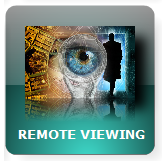 |
||||||||
Remote viewing (RV) is the apparent ability to gather information about a distant or unseen target using paranormal means, in particular, extra-sensory perception (ESP) or sensing with mind. Scientific studies have been conducted, and although some earlier, less sophisticated experiments produced positive results, none of the newer experiments concluded with such results when under properly controlled conditions, and therefore, like any other forms of ESP, constitutes pseudoscience.[1][2][3][4] Typically a remote viewer is expected to give information about an object that is hidden from physical view and separated at some distance.[5][6][7] The term was introduced by parapsychologists Russell Targ and Harold Puthoff in 1974.[8] Remote viewing was popularized in the 1990s, following the declassification of documents related to theStargate Project, a $20 million research program sponsored by the U.S. Federal Government to determine any potential military application of psychic phenomena. Although one Stargate viewer had been awarded in 1984 a legion of merit for determining "150 essential elements of information (...) unavailable from any other source",[9] the program was eventually terminated in 1995, citing a lack of documented evidence that the program had any value to the intelligence community.[10] One of the early experiments was lauded by proponents as having improved the methodology of remote viewing testing and as raising future experimental standards, but also criticized as leaking information to the participants by inadvertently leaving clues.[11] Some later experiments had negative results when these clues were eliminated.[12] |
||||||||

